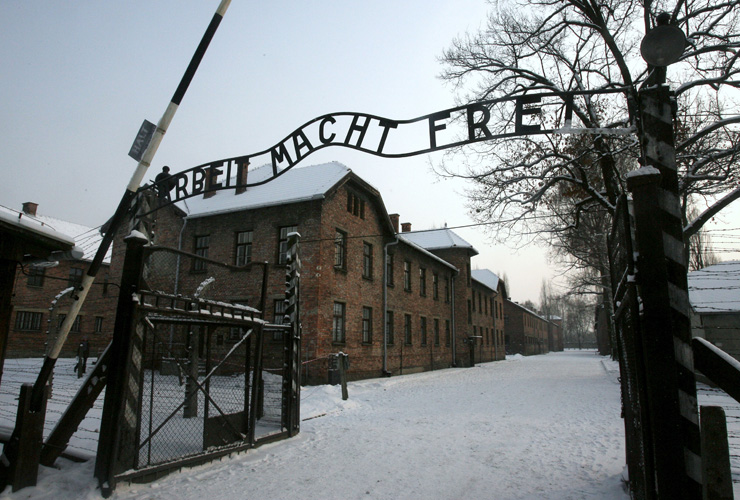Poland amends Holocaust law after international outcry
Legislation made it a criminal offence to accuse the Polish state of complicity in Nazi war crimes

A free daily email with the biggest news stories of the day – and the best features from TheWeek.com
You are now subscribed
Your newsletter sign-up was successful
Poland has backtracked on a controversial law which made it illegal to accuse the Polish nation of complicity in the Holocaust.
The legislation, introduced by the country’s right-wing governing party earlier this year, also prohibited people from describing Nazi death camps in Poland as Polish.
Those who broke the law faced hefty fines and up to three years imprisonment.
The Week
Escape your echo chamber. Get the facts behind the news, plus analysis from multiple perspectives.

Sign up for The Week's Free Newsletters
From our morning news briefing to a weekly Good News Newsletter, get the best of The Week delivered directly to your inbox.
From our morning news briefing to a weekly Good News Newsletter, get the best of The Week delivered directly to your inbox.
The move angered Holocaust survivors, triggered protests outside Polish embassies and led to fierce condemnation from leaders in Israel, Europe and the US.
Israeli Prime Minister Benjamin Netanyahu was among the most vocal opponents of the law, describing it as an attempt to whitewash history.
“The outcry was so swift and intense that even Polish lawmakers themselves appeared surprised,” the Washington Post reports.
In response, an amendment to the law was backed by the lower house of parliament during an emergency session on Wednesday and will now move to the Senate.
A free daily email with the biggest news stories of the day – and the best features from TheWeek.com
The move was a clear attempt to repair diplomatic relations with the US, says the BBC’s Adam Easton. “Warsaw has enough problems in Europe thanks to its dispute with the EU over reforms to the Polish judiciary, so it does not want to fight another front with Washington,” he says.
Although the unexpected U-turn has been welcomed by groups including the Yad Vashem Holocaust Remembrance Center, some critics argue that it has not gone far enough.
“The false attribution to Poles of Nazi crimes will remain a civil offence, with Polish courts able to administer fines,” The Guardian reports.